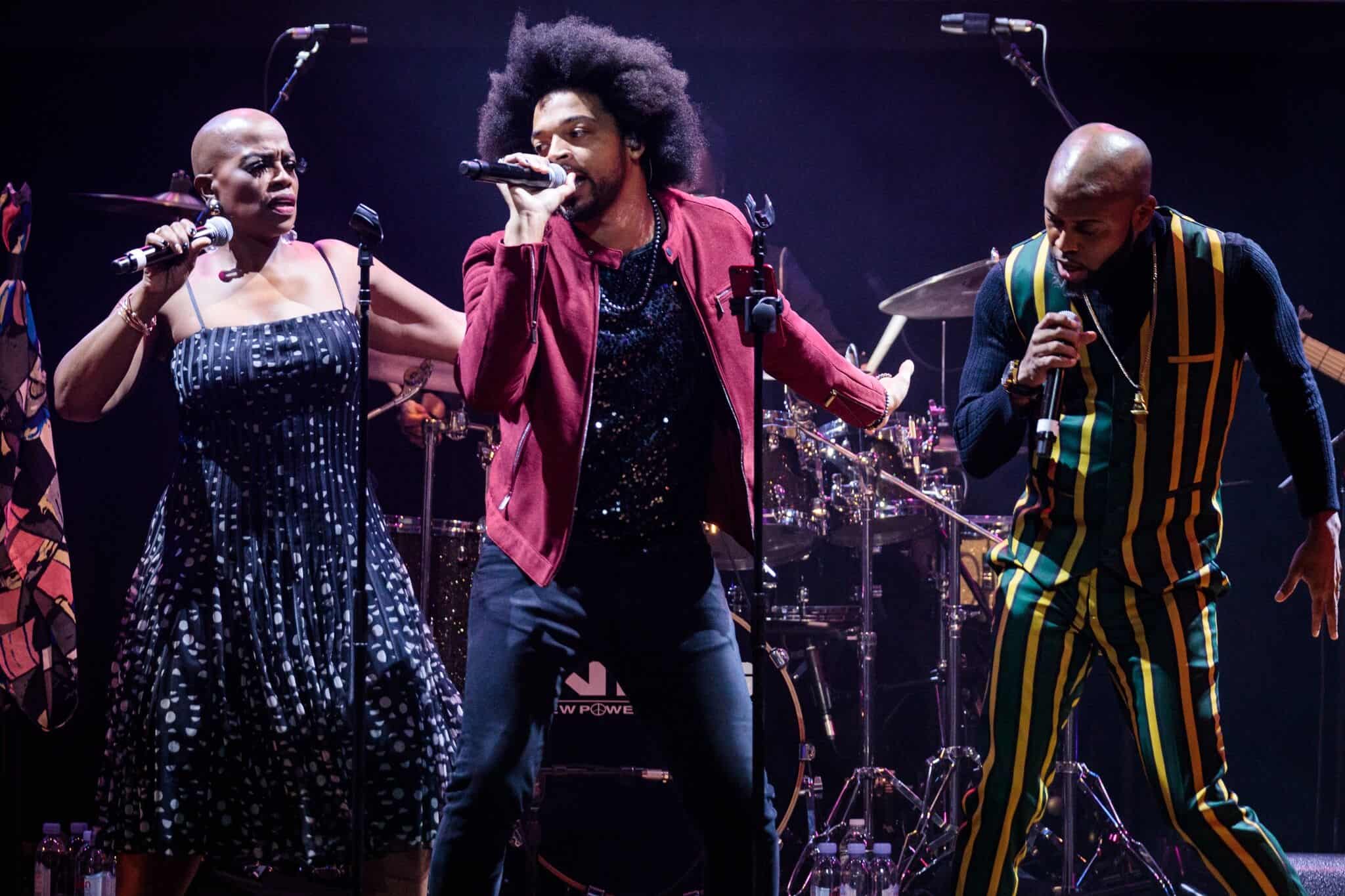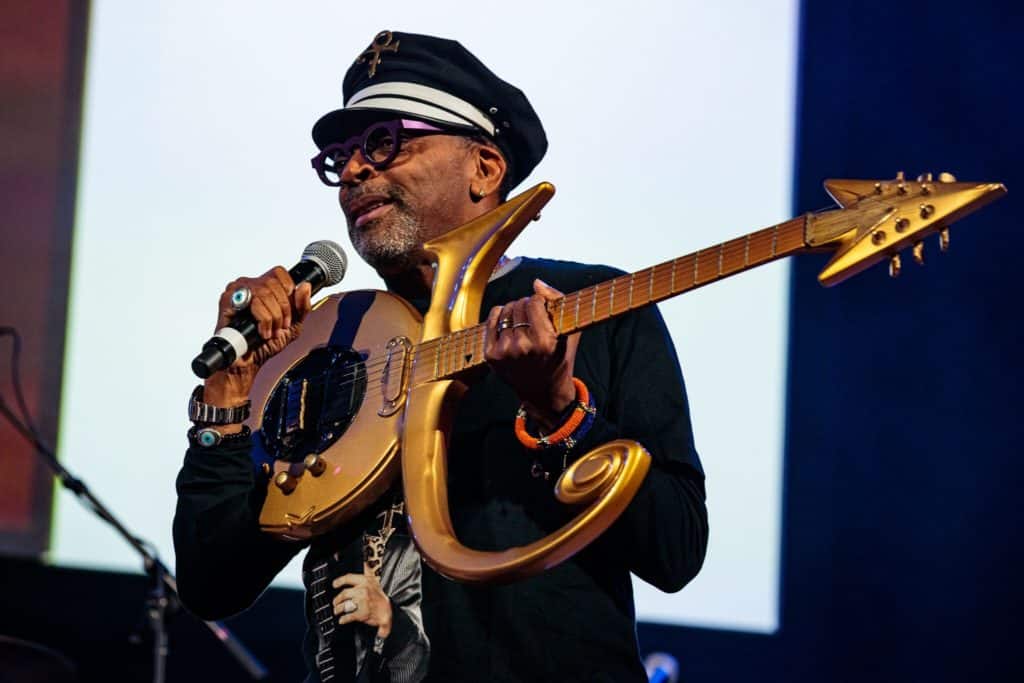For an artist of such enormous popularity for such a long period of time, Prince was never one to fall in line with expectations. He played sexuality and spirituality side by side, willfully crossed perceived lines of race, gender and musical genre and insisted on musical autonomy where most artists in his league happily cash the corporate checks.
So an evening properly celebrating his life and art couldn’t easily be any one thing, as it was (or wasn’t) on August 18 at Town Hall. Prince: The Beautiful Ones was a glam book release for the just released memoir of the same title, but it was also a concert, a memorial and a benefit for the Harlem Children’s Zone.
The evening began appropriately unexpectedly with an African percussion group (one of the realms Prince would have gotten to eventually had he not left this realm in April 2016). The balafon intoned the familiar three-chord intro of “When Doves Cry,” the artist’s first true moment of brilliance, as members of his band the New Power Generation filed onstage and joined in. With four drummers and as many singers (not to mention the bass guitar Prince famously excised from the song), it was a fuller sound than the record, and they’re a good band. They may not be that good, they’re not Prince good, but that wasn’t the point.
The NPG would return several times during the course of the night, playing a total of eight songs, from the huge (“Purple Rain,” “Nothing Compares 2 U”) to lesser hits (“Call My Name,” “DMSR”).
Between songs, Prince was remembered, as journalist and evening emcee Greg Tate put it, for “his life, his art, his legacy and his philanthropy” by a diverse group of devotees: Dan Piepenbring, co-author of the new memoir; publisher Chris Jackson; director Spike Lee; NYU digital media professor De Angela Duff (who organizes annual symposia on Prince albums at the university); and Kwame Owusu-Kesse, chief operating officer of the evening’s benefactor, Harlem Children’s Zone. In 2011, Prince donated $1M to the organization, just one of his many examples of charitable benevolence, most of which weren’t publicized until the weeks after his death.
More than anything else, Prince was remembered during the course of the evening for his humanism. “We all know the music, but let’s start reading the lyrics,” proclaimed Lee, holding a gold “glyph” guitar that Prince had given him. “There’s some truth in there.”
Those lyrics were often about sex, but – at least to their writer – weren’t just that. “More than my songs have to do with sex, they have do do with one human’s love for another, which goes deeper than anything political that anybody could possibly write about,” Prince said in a 1981 interview quoted in the new book. “I think my problem is that my attitude’s so sexual that it overshadows anything else – that I might not [be] mature enough as a writer to bring it all out yet.”
He and his lyrics did mature, though, eventually running deep beneath the groove. In “Money Don’t Matter 2 Night” (a song for which Lee made the video and that NPG played at Town Hall), Prince sang “Maybe we can find a good reason / to send a child off to war / So what if we’re controllin’ all the oil, / is it worth a child dying for? / If long life is what we all live for / then long life will come to pass / Anything is better than the picture of the child / in a cloud of gas.” Set, as he often did, to an upbeat pop melody, the song is as catchy as it is indicting.
Piepenbring had never written a book when Prince hired him. But before much headway could be made, his employer was gone, leaving him with the difficult task of completing the book alone. What he came up with isn’t a full life story but it is respectful and insightful and it looks good. It feels like something of which Prince would have approved, and those are some big words. The book paints its subject not as a genius or a mystic, not as a visionary or a pop star, not as Valentino or Greta Garbo, but in fact as all of those. Most of what was written about Prince during his lifetime focused on whichever of the star’s guises an author chose to pursue, and in fact the artist often encouraged the haze. Piepenbring portrays Prince as what he was, an intelligent, passionate and multi-faceted person.
To borrow another lyric, Prince once sang, “I can’t understand human curiosity / Was it good for you, was I what you wanted me to be?” It’s likely his fans will never understand everything that he was, but yes, it was good.











